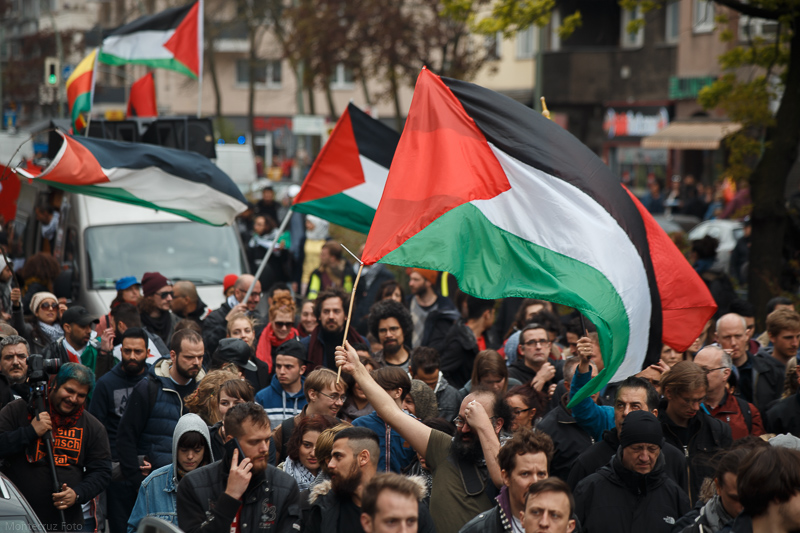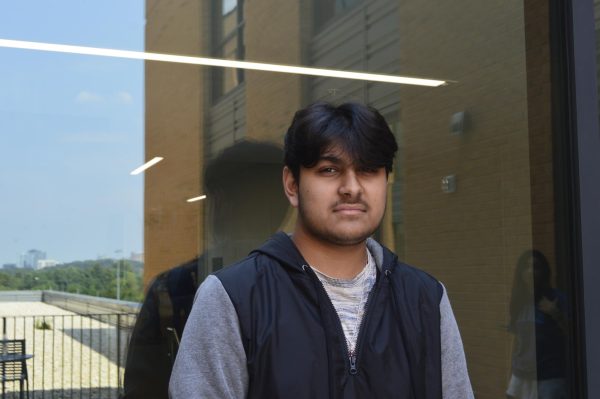Death and destruction are consuming Palestine and Israel. And since the outbreak of this conflict, numerous news outlets have reported a disturbing surge in hate speech propagation on media platforms.
On Oct. 7, Hamas and other Palestinian armed groups violated international law, exhibiting a shocking disregard for human life through egregious acts such as mass summary killings, hostage-taking, and launching indiscriminate rocket attacks into Israel. In response, Israeli forces initiated relentless air bombardments across the entirety of Palestine, resulting in devastating consequences.
The already dire humanitarian situation, stemming from Israel’s 16-year-long illegal blockade, was further intensified by the Minister for Defense’s order on Oct. 8 to impose a complete siege. The siege severed access to essential resources like food, water, fuel, electricity, and communication in Gaza and committed the war crime of collective punishment.
The surge in hate speech propagation includes content that encourages violence, fosters hostility, and promotes discrimination, all of which violate international human rights law. The concerning trend extends to harmful narratives targeting both Palestinian and Jewish communities.
In recent years, social media has played a significant role in shaping narratives of major conflicts. With the representation of both sides using the platforms to amplify their perspectives, social media can sometimes lead to the oversimplification of a highly intricate issue, contributing to the polarization of public opinion(s).
As discussions about the Israel-Palestine conflict unfold across these platforms, the call for enhanced measures to safeguard human rights has become increasingly urgent. Beyond individual actions, collective efforts from these platforms are seen as a crucial response in fostering a more responsible and balanced digital discourse.
Failure to do so not only has a chance to exacerbate human rights violations but also, by proxy, shows support for war crimes, a regrettable hallmark of the ongoing conflict. The war crimes have led to an unparalleled toll of civilian casualties, especially for those in Palestine—whom social media and the United States government have skimmed over.
In an investigation done by Amnesty International, the human rights organization unveiled a substantial volume of social media posts that not only glorify Israel’s assaults on Gaza’s civilian population but also endorse the devastation of Gaza and violent actions against Palestinians. These posts frequently employ dehumanizing and racially biased language, echoing terminology used by Israeli authorities.
Additionally, the investigation documented a series of antisemitic posts, many of which promote hatred and violence directed at Jewish individuals. Previous research conducted by the Center for Countering Digital Hate underscores a notable upswing in antisemitic content on social media platforms in recent months.
Over 1000 journalists, including those from major outlets like Reuters and The Washington Post, have signed an open letter condemning Israel’s actions in Gaza and criticizing Western media’s coverage. The letter accuses newsrooms of justifying the ethnic cleansing of Palestinians and emphasizes a call for fairness in reporting. It urges the use of terms like “apartheid,” “ethnic cleansing,” and “genocide” to describe Israel’s treatment of Palestinians.
Israeli government and military figures have also employed dehumanizing language and demonstrated anti-Palestinian sentiments. For instance, on October 16 the Prime Minister of Israel, Benjamin Netanyahu, via the @IsraeliPM account, posted, “There is a struggle between the children of light and children of darkness, between humanity and the law of the jungle.”
The issue of distinct polarization goes beyond the realm of social media. Despite the conflict’s global significance, Western media has been criticized for failing to provide nuanced and comprehensive coverage. Criticism towards major news organizations exemplifies the perceived imbalance in reporting, with some accusing Western media outlets of favoring one side over the other.
In light of the Oct.7 attacks, major Western media has published content focusing on immediate events without providing sufficient context or historical background. Since then, the conflict has been portrayed through a lens of violence and tension, overshadowing the root causes and complex political dynamics that contribute to the ongoing strife.
Similarly, since Oct. 7, various social media platforms have been indicating an over-broad censorship of pro-Palestinian content—even banning accounts that advocate for Palestine. Content moderation also demands balance to uphold the right to freedom of expression while combating the widespread promotion of hatred.
To combat this, social media enterprises must allocate sufficient resources to human oversight of AI-driven content moderation systems. This is crucial to guarantee that all users, irrespective of their language and political perspectives, can enjoy equitable online rights, including Palestinians. Regrettably, the dismissal of staff tasked with ensuring human rights compliance has compromised the efficacy of such platforms in achieving this delicate equilibrium.
Studies indicate that AI systems often perpetuate existing societal biases while maintaining an appearance of neutrality. On Oct. 19, Meta issued an apology for incorporating the term “terrorist” into Instagram profile translations that included the words “Palestinian” and “Alhamdulillah” (meaning Praise be to God), along with the Palestinian flag emoji.
Notably, the company also lowered the certainty threshold for ‘hiding’ potentially offensive content from 80% to 25% for content originating in significant parts of the Middle East. While aimed at curbing the dissemination of hostile speech, this adjustment may inadvertently lead to overly broad restrictions on content.







